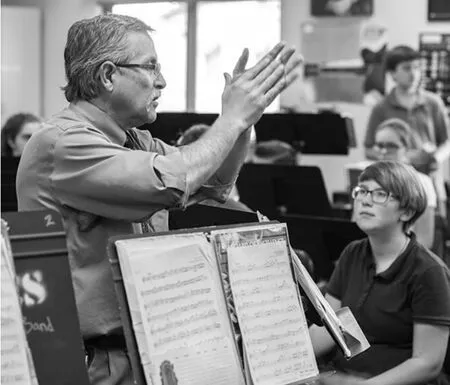Music helps students do better
四川 蒋建平(特级教师)
难词探意
1.inclined /ɪn'klaɪnd/ adj.想做某事的; 倾向于……的
2.coordination /kəʊ,ɔːdɪ'neɪʃn/ n.协调;配合
3.motivational /,məʊtɪ'veɪʃən(ə)l/ adj.激励的
4.tangible /'tændʒəbl/ adj.实际的;真实的

Schools are under constant pressure to make budget cuts, and music programs are often first on the chopping block.Now, a study from the University of British Columbia (UBC) in Canada shows that students who took music lessons in high school performed better in subjects such as English, science, and math.
The researchers collected data from over 100,000 students at public high schools across the province of British Columbia.Some of them took music lessons during high school while others never attended them.Comparing the test scores of students who took music classes with those of their peers, the students who took music classes got higher grades in a range of different school subjects.
Research like this has been done before, but the current study is much larger, and took into account other factors that may affect the results.For example, perhaps students who took music classes were encouraged to do so because they already had good grades.Or perhaps students were more or less inclined to study music depending on their socio-economic background, which could also affect academic scores.This UBC study includes data from comparable groups—students of the same age in the same school and geographical region, and rules out a number of other factors that could explain why music students performed better academically, and the researchers still found a clear effect of music lessons on academic performance.
Not only did music students perform better than non-music students, but students who played an instrument did even better than those who sang.“Learning to play a musical instrument and playing in an ensemble (乐团) is very rewarding,” says Martin Guhn, one of the researchers.“A student can learn to read music notes, achieve eye-hand-mindcoordination, develop keen listening skills and establish interpersonal relationships.”
What this study doesn't tell us, though, is why music makes these students perform better academically, but the research paper mentions a few possible explanations.Music practice is linked with neurological changes that improve certain brain functions, affecting memory and planning skills.The researchers also consider that there is a possiblemotivationalfactor: Students who take music lessons see atangibleresult from practice—they get better—and they might apply that to their other work.And finally, students who joined the non-competitive team and made music together could strengthen their social development, which would also help them in other areas.
Reading Check
1.How did the researchers find the result of the research?A.By making comparisons.B.By analyzing causes.C.By listing previous data.D.By building models.
2.How was the recent study different from previous ones?
A.It was carried out nationwide.B.It covered more school subjects.
C.It allowed for students who sang.D.It produced a more convincing result.
3.Why did the author mention Martin Guhn's words in paragraph 4?
A.To explain why music helps students perform better.B.To present the benefits of playing instruments.
C.To encourage students to join an ensemble.
D.To speak highly of music students.
4.What can be inferred from the last paragraph?
A.Singing can't make any difference in improving students' memory.
B.Music practice can make an overall improvement in students' brain.
C.Progress made in music may motivate students to work harder in math.
D.Playing in an orchestra could make students less competitive in other fields.
Language Study
熟词生义
And finally,students who joined the non-competitive team and made music together couldstrengthentheir social development, which would also help them in other areas.最后,参加非竞争性团队并一起创作音乐的学生能加强他们的社会发展,这对他们在其他领域的发展也是有帮助的。
strengthen v.加强;增进
e.g.It will draw you closer together, and it will strengthen the bond of your relationship.这将使你们走得更近,并将增进你们之间的关系。

